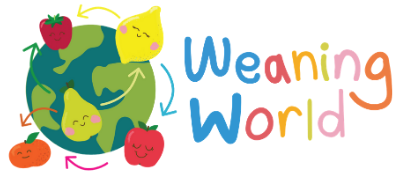Is “all organic” the way forward? We want the best for our babies, but is organic food as good as they say?
Parents in increasing numbers are choosing to give their children organic food. Many believe that it is healthier, but what are the real differences between organic and the standard offering?
The Good
People opt to buy organic food for many reasons.. no pesticides, concerns about GM foods, taste, environmental considerations and concerns about animal welfare. The reason for giving it to children is the belief that it’s healthier. Surely then that means it is better for them, right?
Organic food is unequivocally a healthier option. It contains less pesticide residues than conventionally grown food.
The Soil Association (which campaigns for organic food and farming) says that some of the chemicals used in traditional farming (i.e pesticides) may have some long-term effects on health. Organic food does not contain artificial colourings, flavourings or sweeteners, or any genetically modified (GM) ingredients. With organic meat, greater emphasis is placed on animal welfare. Antibiotics are not added to animal feed, so don’t then find their way into the food chain, which with conventional animal rearing, has raised some concerns that the practice is leading to resistance to antibiotics in humans.
The Great
Three out of four babies in the UK have organic baby food regularly, according to the Soil Association.
There are limits on pesticide residues in commercial baby food but these rules don’t apply to fresh fruit and vegetables. In this case, especially, buying organic foods may be a healthier option. Incorporating them into your baby weaning plan, whether its baby led or purees, will undoubtedly benefit your little one.
Find some fantastic baby weaning puree recipes here.
The Not so Great
Now the flip side. The big one is cost. The price of organic food varies depending on where you shop. Organic producers say that their food is more expensive because organic farms use fewer fertilisers and pesticides than regular farms, so they simply can’t produce as much.
But does it have to cost you more?
In a 2017 report for
The Telegraph, Rosie Birkett, cook, food writer and ambassador for the #FeedYourHappy campaign stated: “Some organic food comes with a bigger price tag, But if it is something you care about, there really are hacks to make it more affordable” The report goes on to explain various ways to eat organically but economically, such as adding more vegetables and pulses to a meal, shopping using a meal plan and using your freezer in a smarter way.
Whether you decide to go fully organic, or just want to try and incorporate some organic food in, remember giving your baby a varied and nutritious diet is the most important thing, organic or not.
News and views are not necessarily those expressed by Weaning Week. Every child is an individual with unique needs. If you require specific advice please contact your GP.
